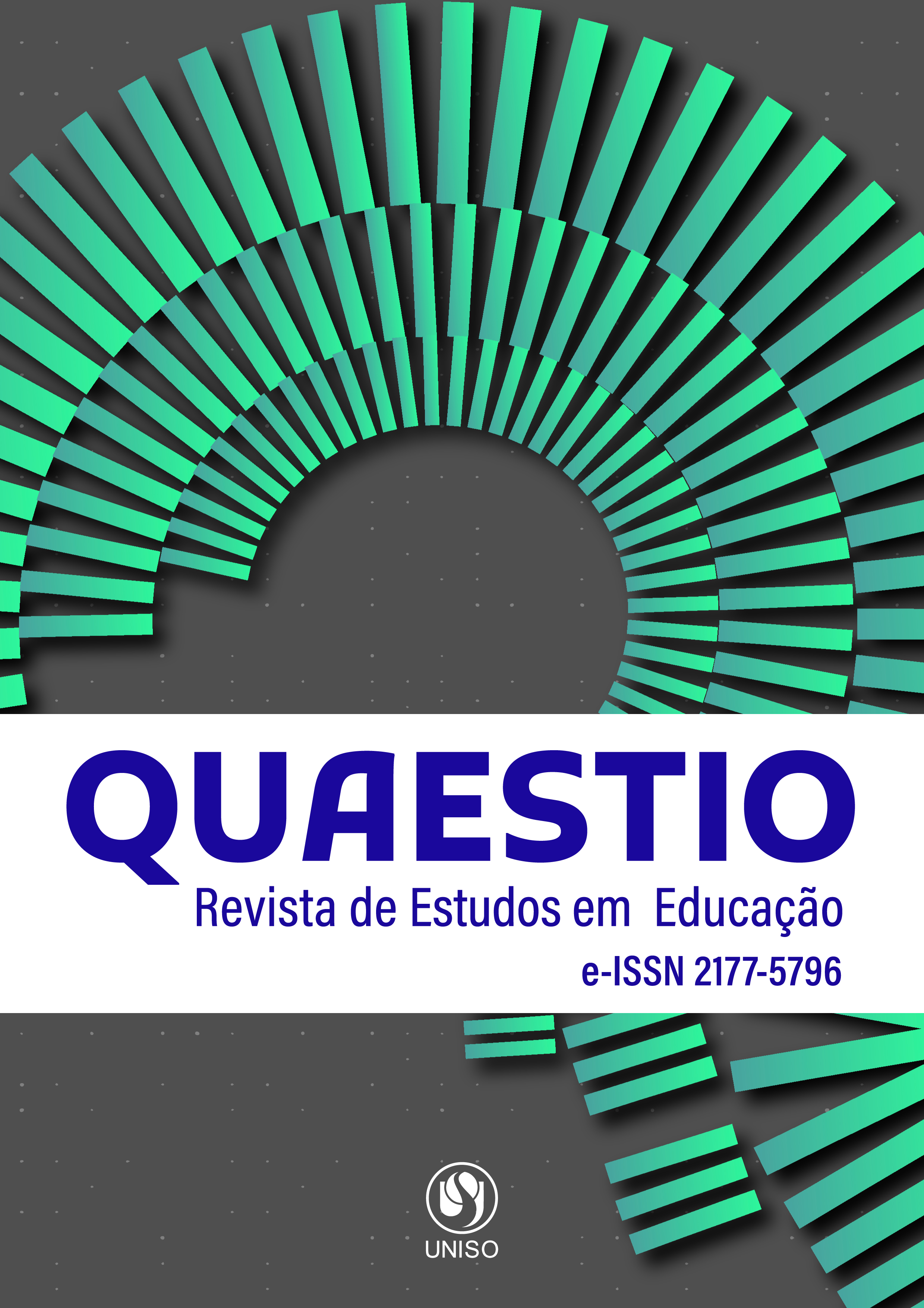Listening-diologuing on Freire
a challenge to the school yet?
DOI:
https://doi.org/10.22483/2177-5796.2024v26id5254Keywords:
traditional education, listening-dialoguing, teacher-student relationship.Abstract
This article, about qualitative methodological approach, has the goal of presenting some reflections on the issue ‘how teachers and students realize the dialogic relationship in the teaching-learning process, breaking with its fragmentation’? The theoretical foundation is based on Paulo Freire’s thoughts, extracting from his works, specially, the listening-dialoguing concepts and its implications on the constitution of the existent relationships of the teaching and learning process. The empirical field is a basic education school, where two discussion groups were made, composed by students and teachers. And, a questionnaire applied to 184 students from the same year of elementary school. During the data collections and processing process, we sought to understand how the researched subjects perceive the dialogical relationship in the teaching-learning process. From these analysis, stands out the listening-dialoguing importance, as central concepts of Freirean work, coming from the same dialogue sense, as confrontation to the fragmentation and “banking education” still existents in the school and, at the same time, as action that make an integral formation possible.
Downloads
Downloads
Published
How to Cite
Issue
Section
License
Copyright (c) 2024 Quaestio - Revista de Estudos em Educação

This work is licensed under a Creative Commons Attribution 4.0 International License.
Esta licença permite que outros remixem, adaptem e criem a partir do artigo para fins não comerciais, desde que atribuam ao(s) autor(es) o devido crédito e que licenciem as novas criações sob termos idênticos.
Os artigos publicados são de total e exclusiva responsabilidade dos autores, que mantêm os direitos autorais e atribuem o direito da primeira publicação para a Quaestio: Revista de Estudos em Educação do Programa de Pós-Graduação em Educação da Universidade de Sorocaba.
Outros acordos contratuais podem ser feitos pelos autores, para posterior distribuição da versão do artigo (por exemplo em páginas institucionais ou pessoais, ou em livro), explicitando que o trabalho foi publicado nesta revista .

















